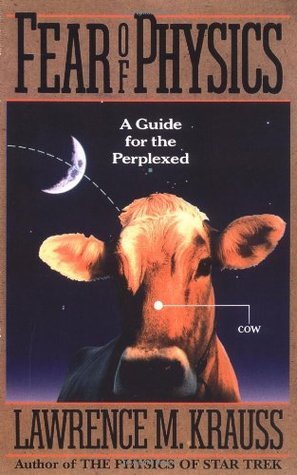
A Universe from Nothing: Why There Is Something Rather Than Nothing
Book Description
What if everything you know about existence was turned upside down? In "A Universe from Nothing," Lawrence M. Krauss pulls back the curtain on the cosmos, unraveling the mind-bending mystery of why there is something instead of nothing. Through engaging narratives and jaw-dropping science, he challenges age-old beliefs and reveals the remarkable forces that birthed reality. With each astonishing revelation, the fabric of the universe stretches and twists, offering a thrilling intellectual adventure that leaves you questioning the very nature of existence. What truths lie hidden in the void, waiting to reshape our understanding of the universe?
Quick Book Summary
In "A Universe from Nothing," Lawrence M. Krauss explores one of the most profound questions in science and philosophy: why is there something rather than nothing? Using accessible language, Krauss unpacks the laws of modern physics and cosmology, revealing how the very fabric of space, time, and matter can emerge from apparent emptiness. He discusses the quantum mechanics underpinning the vacuum, how recent astronomical discoveries illuminate the universe’s beginning, and challenges the necessity of supernatural intervention in creation. Krauss not only demystifies complex scientific concepts but also engages deeply with philosophical and theological implications, arguing that scientific inquiry provides satisfying, evidence-based answers to existence. The book ultimately champions curiosity and critical thinking, offering a vision of a universe whose origins are stranger and more fascinating than traditional creation myths.
Summary of Key Ideas
Table of Contents
Quantum Mechanics and the Nature of Nothingness
Krauss begins by addressing the longstanding question of why the universe exists at all, probing what physicists mean when they discuss "nothingness." He explains that in quantum mechanics, even what we call empty space is teeming with activity: virtual particles continually pop into and out of existence. This quantum vacuum, far from being inert, is a dynamic stage where the fundamental forces of nature can generate matter and energy. Krauss reframes "nothing" not as absolute emptiness but as a physical construct with properties that can spawn "something."
The Evolution and Fate of the Universe
Building on this foundation, Krauss surveys the latest discoveries in cosmology and particle physics, especially the Big Bang theory, cosmic inflation, and the role of quantum fluctuations in the birth of the universe. He details how measurements of the cosmic microwave background radiation, the distribution of galaxies, and the accelerating expansion of the universe support the idea that the cosmos originated from a quantum event. Dark energy emerges as a key component, responsible for the universe’s acceleration and reinforcing the notion that the universe can arise from quantum processes.
Challenging Religious and Philosophical Notions of Creation
Krauss critically examines traditional philosophical and religious responses to the question of creation, arguing that modern physics has rendered supernatural explanations unnecessary. He suggests that concepts invoking a deity or "prime mover" are losing relevance as science uncovers increasingly sophisticated and natural mechanisms for the universe’s origin. Krauss emphasizes that scientific explanations are not intended to rob life of wonder but to enlarge our understanding by making the extraordinary nature of existence accessible to reason and evidence.
The Role of Dark Energy and Cosmic Origins
The book also considers what these scientific insights mean for human meaning and our place in the cosmos. Krauss notes that while the universe may not have inherent purpose or design tailored for humans, this realization can be liberating. By grounding our understanding in observable reality, science empowers us to find meaning through discovery and curiosity. The fact that we can comprehend the universe’s beginnings is a testament to both the power of scientific inquiry and the uniqueness of conscious life.
Implications for Science, Philosophy, and Meaning
Ultimately, Krauss makes a case for the beauty and significance of a universe that springs from nothing, driven by natural laws. He contends that the poetic grandeur of cosmology should inspire awe no less than religious traditions, and that the continuing search for answers—free from dogma—serves as humanity’s greatest adventure. Through this book, Krauss invites readers to embrace a universe that is at once incomprehensible and intimately knowable, forever challenging our conception of existence itself.
Download This Summary
Get a free PDF of this summary instantly — no email required.





